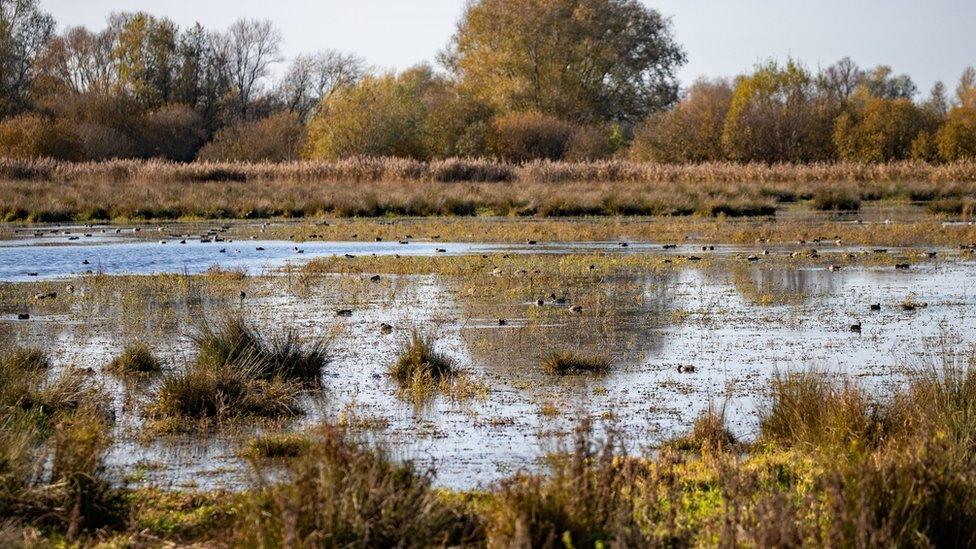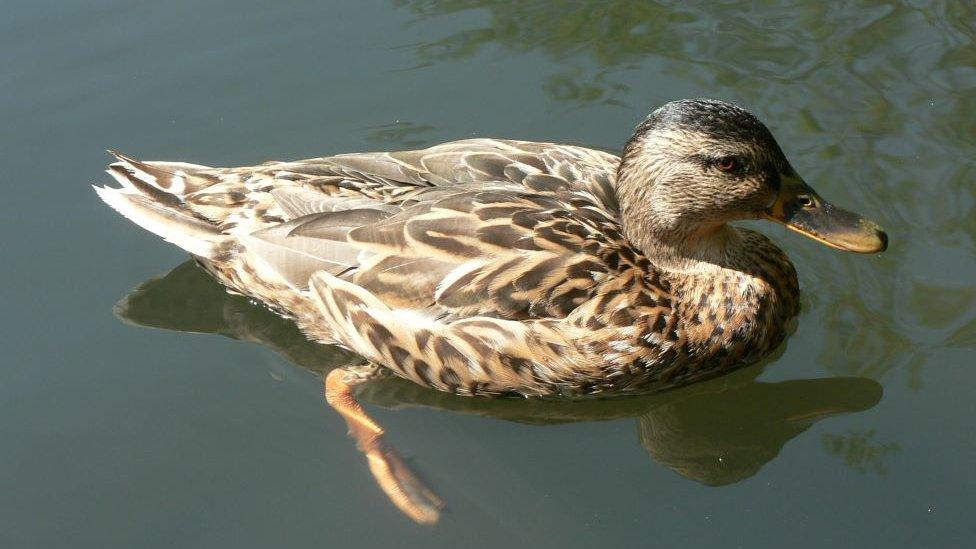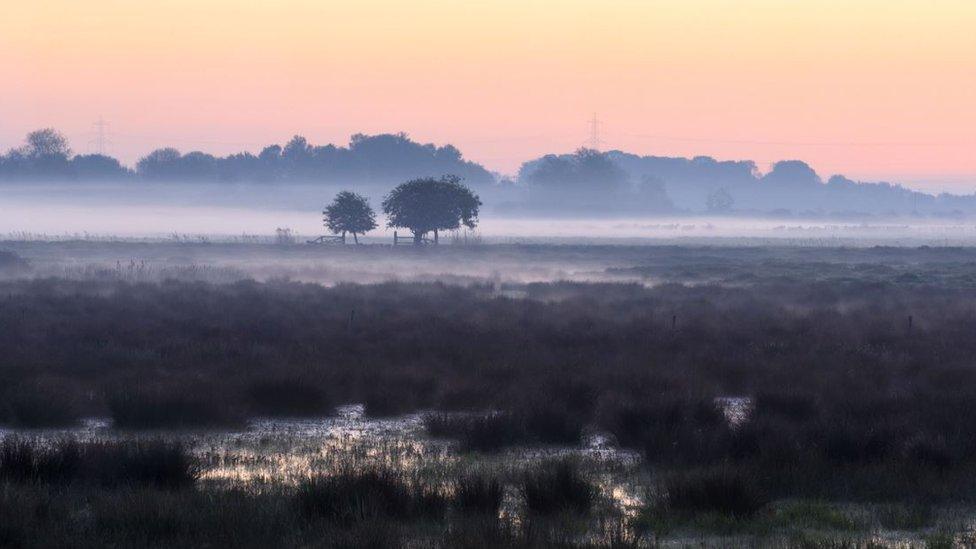Taps turned on at Wicken Fen to create winter wetland habitat
- Published

A winter wetland habitat is being created to attract wildfowl at Wicken Fen in Cambridgeshire
Taps across a nature reserve have been turned on to create a winter wetland habitat.
The wetland conditions created at Wicken Fen, within the Cambridgeshire Fens, will help attract wildfowl including wigeon, teal, geese, egrets and sometimes whooper swans.
A metre-long metal key is used to turn on the taps and allow water to flow from lodes on higher ground.
Rangers say it creates a "spectacle" as wildfowl arrive at the site.
Allowing more water to flow to the lower ground helps restore a rare fenland habitat that was lost due to agriculture-related drainage centuries ago.
Standing pools attract birds and help lock in carbon by flooding the peat soil.
The reserve was the first to be bought by the National Trust, and has expanded from two acres in 1899 to more than 2,000 acres today.

It is hoped the wetland will attract a variety of wildfowl, including gadwalls
Ajay Tegala, a ranger at Wicken Fen, said: "We have six taps which we turn on using a metre-long metal key, allowing water to flow through a pipe on to the fens.
"Because the lodes are higher than the surrounding ground, gravity enables the water to flow without having to resort to pumping.
"There is immediate visual impact as water rushes through and swells up, forming a sort of miniature fountain."
The water continues flowing and after a couple of days "the spectacle continues" when standing water attracts the wildfowl searching for food and safety, he said.
To date, more than 9,300 species, including an array of plants, birds and dragonflies have been recorded at Wicken Fen, making it one of the most species-rich places in the UK.
The National Trust said that weather extremes, such as the heatwave and drought last summer, have added strain on the recovering peatlands.
Alan Kell, Countryside Manager for the National Trust at Wicken Fen, said: "We know that Wicken Fen has a big role to play for climate action, but without sufficient water, it can quickly go from a fantastic carbon sink to a terrible carbon source.
"With droughts anticipated to become more frequent, combined with the pressures of continued development and its associated water use, the availability of water is, and will continue to be, one of the biggest challenges to this site."

Follow East of England news on Facebook, external, Instagram, external and X, external. Got a story? Email eastofenglandnews@bbc.co.uk, external or WhatsApp 0800 169 1830
Related topics
- Published28 March 2023
- Published1 May 2019
